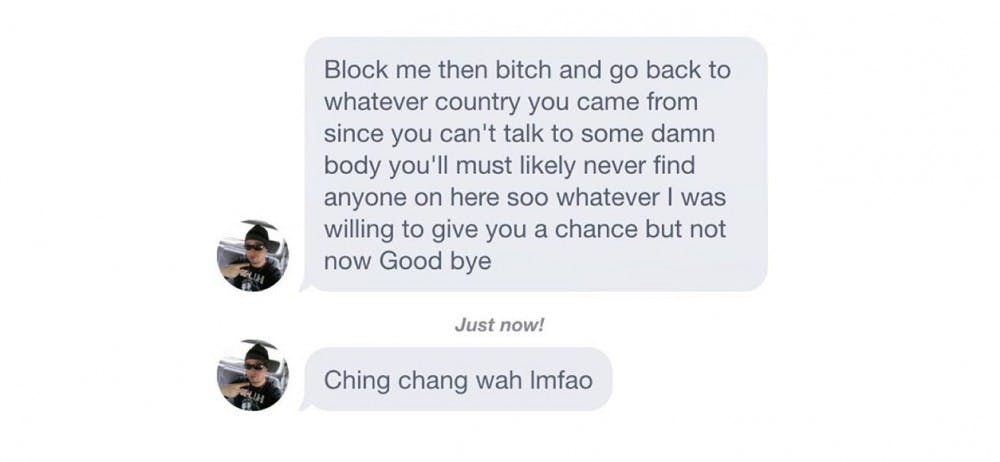The first time I was harassed online, I received a Facebook message that crudely suggested my genitalia would taste like white rice. I was 13, embarrassed and scared.
When I have written critical editorials about race, the negative comments have always been written by self-identified white people or anonymous accounts. These comments are rife with man-splaining, condescension, sarcasm and racism. And if those are bad, feel free to skim through my Tinder messages.
I had yet to write a personal column about my experiences with racism at the University and at The Daily Tar Heel because I didn’t want people to have my face and my name in their heads if they wanted to send harassment. (My last name alone is a giveaway for my race — which was all it took for me to receive that first disgusting Facebook message, unprompted.)
My assistant editor, who is Arab-American, has held off on writing personal pieces for similar reasons.
If we were white, would we still feel this way? Would we even have those problems to write about in the first place?
It’s not that we don’t welcome criticism, but when it comes to issues of race and gender — there’s a difference between attacking someone’s opinion and someone’s identity.
The cyber-race theory, developed in the early 2000s by Jerry Kang, paints an early, optimistic but ultimately incomplete picture of the intersections of race and technology. Essentially, Kang theorized that the affordances in technology can shape the ways that race is performed online in ways both “redemptive and repressive.”
Scholar Jessie Daniels has argued that the default culture of the internet is racist and protects racists more than the targets of racism.
Daniels’ review of the literature in 15 years of study of race online suggests that “the social construction of Whiteness is under-examined and needs to move to the fore in any meaningful study of race and racism online,” and that adolescents learn about race through the adoption of race-related roles online: witnesses, targets, advocates, discussants, sympathizers and friends.




